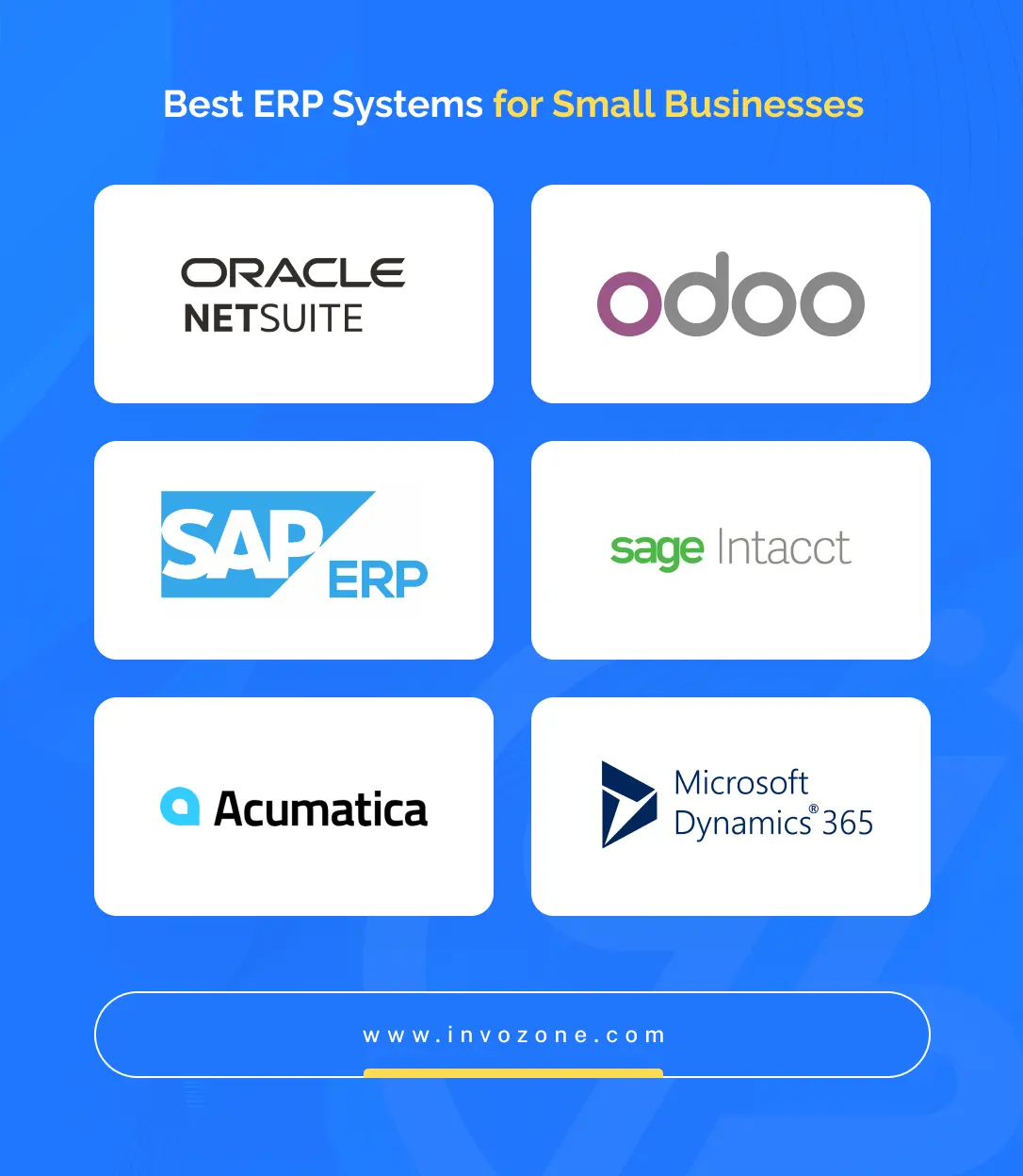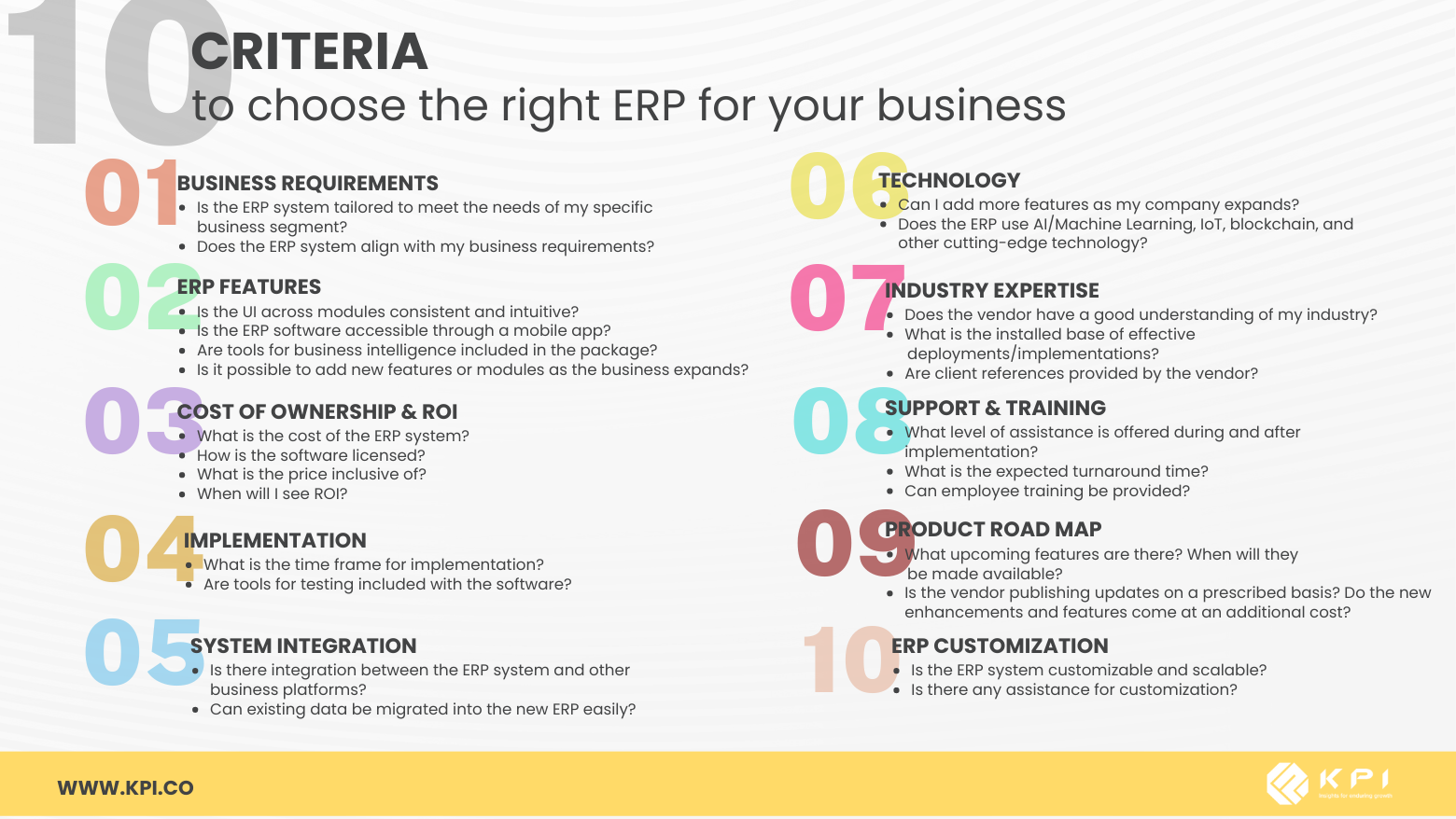Choosing the right Enterprise Resource Planning (ERP) system can be the difference between streamlined operations and constant inefficiencies. With so many ERP options available, businesses must select a solution tailored to their industry’s unique challenges and workflows.
🔗 Internal Link: Learn more about ERP systems for enterprises on our main guide here: ERP Systems for Enterprises
Why Industry-Specific ERP Selection Matters
Different industries operate with distinct processes, compliance requirements, and customer expectations. A generic ERP might lack the depth required to manage niche workflows effectively. For example, a manufacturing company may require advanced inventory control and supply chain management, while a healthcare provider prioritizes compliance with health regulations and patient data security.
Key Criteria for ERP Selection
When evaluating ERP systems, consider the following:
1. Scalability
- Can the ERP grow with your business?
- Does it support additional modules and users as needed?
2. Customization & Flexibility
- Can it be tailored to your workflows?
- Are there industry-specific templates available?
3. Integration Capabilities
- Does the ERP integrate with your existing software (e.g., CRM, HR systems, financial tools)?
4. Vendor Experience in Your Industry
- Has the ERP vendor worked with businesses in your sector?
- Do they offer case studies or client references?
5. Cost and ROI
- What are the upfront and long-term costs?
- Will the system improve efficiency and reduce manual workload?
ERP Recommendations by Industry
Here’s a quick look at what features to prioritize based on your sector:
🏭 Manufacturing
- Real-time inventory tracking
- Production planning and control
- Supplier and warehouse management
🏥 Healthcare
- Patient record security (HIPAA compliance)
- Billing and scheduling integration
- Reporting for audits
🏬 Retail & E-commerce
- Omnichannel inventory visibility
- POS integration
- Customer loyalty program management
🧮 Finance & Accounting Firms
- Advanced analytics and reporting
- Regulatory compliance tools
- Secure document and data handling
🏗️ Construction & Engineering
- Project lifecycle tracking
- Budgeting and resource management
- Mobile access for site teams
Recommended ERP Selection Approach
Follow these steps for a smooth ERP decision-making process:
Step 1: Assess Your Needs
Involve stakeholders from each department to list challenges and goals.
Step 2: Shortlist ERP Vendors
Focus on those with proven success in your industry.
Step 3: Request Demos
Evaluate usability, dashboards, and reporting capabilities.
Step 4: Pilot the Solution
Test the ERP in a limited environment before full implementation.
Step 5: Implement & Train
Ensure team training is prioritized for seamless adoption.
How Singleclic Can Help
Since 2013, Singleclic has been a leader in delivering tailored ERP solutions across the Middle East and North Africa. Our expert team helps businesses:
- Choose and customize ERP systems based on their sector
- Ensure smooth integration with existing systems
- Provide ongoing support and training 24/7
Whether you’re in manufacturing, healthcare, retail, or another vertical — we ensure your ERP fits perfectly.
📞 Get in Touch
- Egypt: +2 010 259 99225
- UAE: +971 42 475421
- Saudi Arabia: +966 58 1106563
- 🌐 Visit our website
People Also Ask
- How to choose the right ERP system?
Focus on scalability, customization, and industry relevance. - What are the criteria for ERP selection?
Cost, features, vendor experience, and integration capabilities. - Which ERP is best for manufacturing?
ERPs with strong production, inventory, and supply chain modules. - What’s the best approach to ERP selection?
Begin with needs assessment, shortlist vendors, request demos, and test before full deployment.









